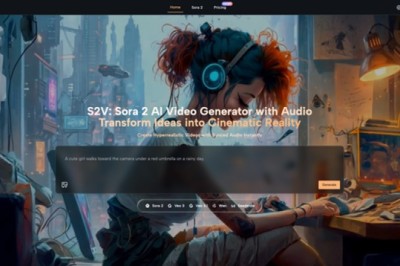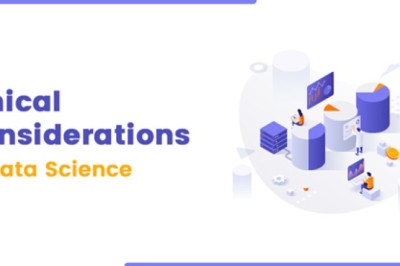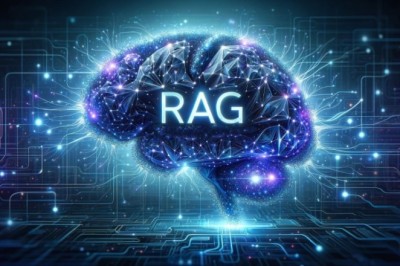views
An organized workforce can bring consistency, stability, and credibility to business enterprises. However, without HR, it would be difficult to streamline the workforce and meet business goals. Human resource management team is an integral part of any organization as they bridge the gap between employees and the organization. The HR team creates, follows, and ensures that others in the organization follow the policies and procedures to keep the employee-organization growth at the centre. They perform multiple activities such as staff acquisition, retention, engagement, employee benefits, etc.; however, their role has expanded in the last couple of years as businesses have diversified and digitized.
Traditional HR systems may not be a great fit for future-focused enterprises. So, it is time to invest in the Next-generation HR software that is packed with powerful features and that allows easy integration with other functions of the organization’s future growth.
How can next-generation HR software transform future enterprises?
- Cloud-based HR: Cloud computing has helped to overcome the barrier of on-premise work. It allows multiple-level excess so any process requiring teamwork can be done easily from anywhere. It ensures that their administrative work does not hamper under any circumstance. All the team members, hiring managers, employees, C-Suite, etc., connected with the HR software can access and work with real-time information. The cloud-based HR software further extends its benefits by integrating with third-party tools. They can integrate with the payroll system or employee performance management software to enhance employees’ experience. Unlike on-premise, cloud computing does not require huge investment, and even small businesses can benefit from the HRIS system.
- Continuous training: Today’s businesses have entered into the “golden age of consumers,” which puts tremendous pressure on the organization to deliver their product quickly and match up with customers’ expectations. There is continuous innovation in the business processes to make them more efficient and lean. In this effort, it is crucial that employees are skilled enough to quickly adapt to new technologies and business processes. Organizations need to see that employees are upgraded with the new skills required to perform their tasks, for which they need to put them to the various skill development programs. HR software can give a better view of employee training programs and allow the organization to schedule the training sessions efficiently. As per Gartner, 68% of HR leaders say that building critical skills and competencies is their top priority in 2022.
- Data analytics: Data analytics has turned out as a game-changer for HR in increasing the efficiency of their operations. It provides them with in-depth information about various aspects of human resources and allows the HR team to make an informed decision on employee management. The advancement in data analytics such as predictive and prescriptive analytics makes HR jobs even simpler. It predicts the event or issues and suggests the possible solution for the problem. With all the data in hand, the HR team can identify the right position for the candidates and hire them accordingly. It can help to reduce the turnover rate and the costs associated with it. A step further, many organizations envision the application of data analytics beyond tracking employees’ productivity and performance. Future enterprises can use power of data analytics to analyze the employees’ behavior on various parameters such as dominance, patience, aggressiveness, etc. Based on their behavior traits, their roles could be assigned.
- Automation: Future enterprises demand HR teams to become more strategic and contribute beyond managing human resources. Automation can free up the HR team from admin work and help them to focus on value-driven activities. The HR team can automate a range of activities such as pre-employment assessments, sorting candidates, posting job ads, employee onboarding and offboarding, tracking performance, claiming expenses, document management, etc. It even helps to track employees’ time and attendance automatically. It auto-capture employees’ attendance data and submit it to the timesheet entries. It is also helpful in tracking various leaves such as disability leave, maternity leaves, and all other types of leaves. One of the most significant advantages that automation provides to HR is scalability. By automating a few tasks, HR can recruit more candidates and speed up their hiring process. The HR process that was fragmented in the past can become more structured and competitive.
- Personalized experience: Extending personalized experiences is the top priority among business enterprises, and they are fostering new ways to elevate personalized employee experience in their workspace. With mobility and the availability of functional mobile apps, organizations are able to increase employees’ engagement level and encourage open discussions. Besides that, organizations are showing their interest in advanced technologies such as chatbots, IoT, and AI to enhance the employee experience. These technologies can be used to answer employees’ FAQs, schedule interviews, or even notify them about the interview status.
- Remote and hybrid work: Business enterprises are embracing the new trend of a combination of work-from-office/ remote, or hybrid work style. With this new work style, the HR role becomes more crucial in tracking the employees’ work and engaging them. This demands constant coordination with the employees, conducting virtual interviews, planning virtual meetings, and many more to accommodate the new work culture. HR tools act as a unified platform to perform several HR-related functions, including, hosting virtual meetings with the employees and carrying out training sessions through videos. HR software with AR and VR technology would be in demand in the future as it makes the remote work style more intuitive and engaging. As per the ABI research, the enterprise VR training market will grow to $6.3billion in 2022.
- Meeting regulatory compliances: In the last one decade, the approach for business has completely changed, and along with that, there are many laws and compliances that came into existence. It is pretty difficult to predict that there will be no more improvisation in the business or introduction of the new compliances in the coming years. The current business is volatile and keeping track of all the compliances associated with it is crucial to avoid fines and lawsuits. Modern HR tools can be pretty helpful in meeting various HR compliances. These tools ensure that the organization is following all the rules and regulations, and in case there is any violation, the software notifies the organization to fulfill the compliance requirements.
- Value-Centered: Enterprises are moving from a generalist business model towards value generation. The impact of this strategy is also observed in HR. HR is focusing on strategies that increase their ability for resource utilization and deliver the best experience to employees. From online screening tests to web-based training, organizations are tapping on every opportunity to improve employee engagement. HR software can be a useful tool in increasing the organization’s value and delivering the best employee experience. It allows HR professionals to work closely with employees and aid them in performing their tasks. There are many features in the HRMS system, such as automation, data analytics, real-time online communication, employee self-service, employee scheduling, etc., that help HR add value to the organization. There are other tools such as pre-employment testing software and talent management software that can be used along with HR software for value-creation.
- Data-security: HR holds confidential information about HR, and securing them is critical, as along with it also brings the risks of the data breach. The other way hackers can access the HR database is by submitting a fake resume with a malicious link to the HR system. A simple excel sheet or spreadsheet with weak security features on the server can become an easy target for hackers to steal information. Therefore, HR must have a robust HRMS system with strong security and data-backup features. The next-generation HRMS system even allows companies to keep all the confidential data safe and secured.
- Document management: HR team deals with more documentation than any other team in the organization. From employees’ resumes to offer letters and training manuals, they have to keep records of all the documents. If they misplace any document or make an error in filing the document, it could bring unnecessary problems for the organization. Future enterprises prefer paperless documentation that is easy to access and minimizes the risk of misplacing the documents. A centralized document management system can address all their concerns with documentation. HR software can help to manage documents from a single place without any hassle. It helps to speed up the recruiting process since all the information about the applicant is organized and easily accessible. The HR software also helps to recover the information if deleted by mistakes, and their high-security measures keep documents safe from hackers.
Conclusion:
HR software is no more an alternative but a must-have tool. Businesses aiming to be more strategic and agile in their work approach, need to fine-tune their workflow and minimize the downtime in HR processes. HR software is an effective solution for modern-day HR professionals and provides features that accelerate their overall work. If your organization is aiming for a stable growth in the future, it is recommended that you invest in the next-generation HR tool.

























Comments
0 comment